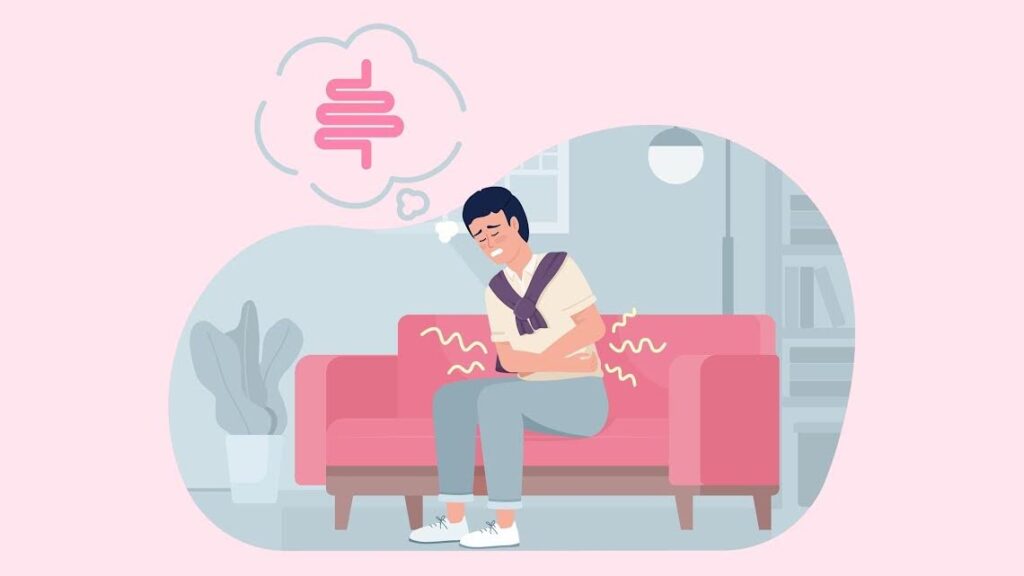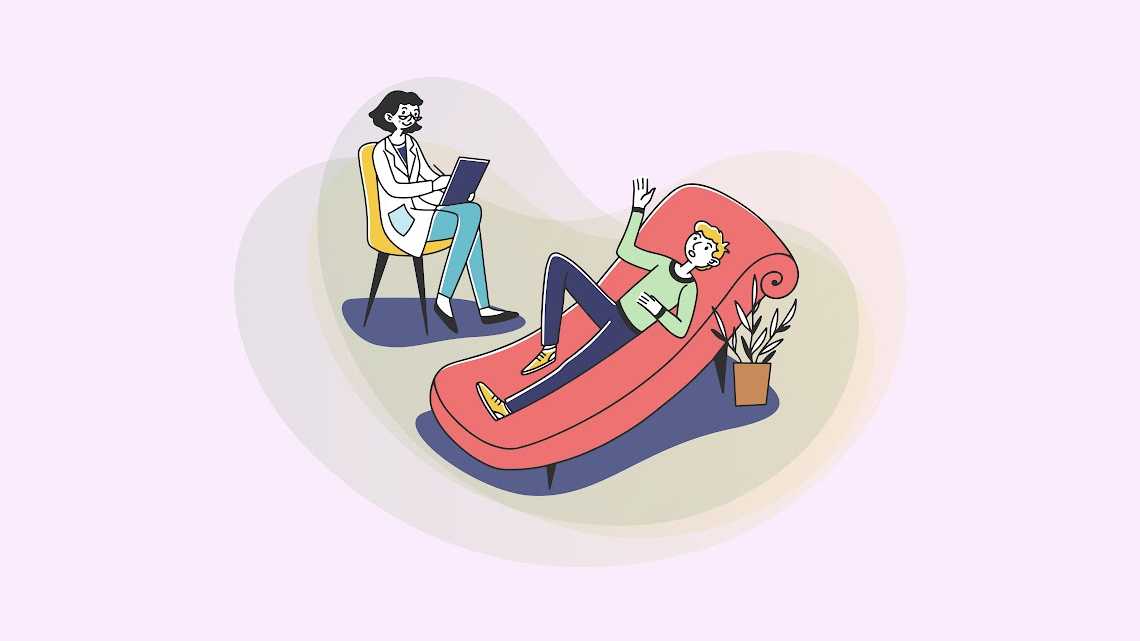
Irritable bowel syndrome (IBS) is a chronic condition that impacts the functioning of the bowel, resulting in either an increase or decrease in the frequency of bowel movements and changes in stool consistency. Generally, there is pain in the abdomen that causes discomfort during bowel movement. Those diagnosed with IBS tend to have a curtailed quality of life as social relationships, leisure activities, and work productivity are adversely affected.
Symptoms
The major symptoms in IBS involve abdominal pain, discomfort or cramps. These may be accompanied by diarrhoea, constipation, or a back-and-forth shift between the two. Additional symptoms that some patients may report are bloating, excessive gas, or sometimes, a sensation of fullness leading to nausea. For some people, stools may contain mucus, while some others may feel that their bowels have not fully emptied after using the toilet. Managing these symptoms in daily life can be frustrating because normal functioning may be punctuated by bursts of these symptoms.
How Your Mind Influences Your Gut
IBS isn’t simply a physical problem. It’s also one of our mental health, psyche and emotions. Several psychological aspects affect how someone with IBS decides to manage their condition, the severity of symptoms, how active they are in seeking help and how they undergo the treatment. Some of the major psychological concepts linked to IBS are:
Stress
Childhood trauma, sexual abuse and separation from a caregiver are associated with the development of IBS in the later years. Additionally, these individuals are more sensitive and react strongly to stressful events and this often stars at an early age.
Personality
Some people tend to have certain personality traits that are more likely to make them vulnerable to stress and its impact on the body. Neuroticism, a personality trait that describes people who are more prone to experience negative feelings like anxiety, sadness, or even anger, is linked to IBS. Individuals exhibiting high levels of neuroticism tend to be more stressed and tend to feel the impact of difficulties more strongly and more often.
Coping Styles
An individual’s capacity to deal with stress and pain has a direct impact on their overall health. Pain catastrophizing – magnifying the threat value of pain stimulus accompanied by feelings of helplessness – is one such style that increases symptom severity in people with IBS.

Building a Healthier Lifestyle to Ease IBS Symptoms
You don’t need any hidden techniques to change your lifestyle if you are living with IBS. This plain-language guide demonstrates how you can maintain your health to prevent the condition. Lifestyle changes yield major benefits through weight management, balanced nutrition, regular exercise and alcohol elimination. Let’s dive into each one:
Say Goodbye to Nicotine
Cigarette smoking causes lung damage and additionally harms your digestive system. People who experience anxiety or depression tend to smoke more often, and since mental health is linked to IBS, smoking increases your risk of developing this condition. Giving up smoking helps improve your respiratory system while also benefiting your digestive health.
Develop a Healthy Sleep Schedule
IBS patients frequently experience sleep apnea, which results in inflammation that interferes with normal digestive processes. A regular sleep schedule and a relaxing bedtime routine without screens can help you manage IBS.
Make Exercise Your Best Friend
Light workouts such as walking, cycling or dancing can have major health benefits as exercise helps in reducing gut inflammation and improving digestive functioning.
Focus on Your Diet
Choosing foods that support your gut health can go a long way in helping you avoid major symptoms of IBS such as discomfort or gas. A low-FODMAP diet has shown promise with alleviating the symptoms of IBS.
Limit Your Alcohol Intake
Consuming alcohol disrupts your digestive system. Moderate or eliminate its consumption to avoid those distressing symptoms.
IBS is not just a simple medical condition, it is multifaceted and overlaps with mental and emotional well-being as well. Controlling or managing IBS requires a holistic approach that considers the physical and psychological aspects of it. Lifestyle adaptations work for many people with IBS and can lead to symptom relief and improved quality of life. However, it is important to seek guidance from individuals like dietitians and mental health professionals to develop an individualised plan for you. With the right help and support, you can go a long way in gaining back the quality and control of your life.
Photo Credits:
First image: freepik
Second image: freepik
References
Ho, F. F., Sun, H., Zheng, H., Wong, D. C., Gao, Y. Y., Mao, C., … & Chung, V. C. (2024). Association of healthy lifestyle behaviours with incident irritable bowel syndrome: a large population-based prospective cohort study. Gut, 73(6), 922-931.
van Tilburg, M. A., Palsson, O. S., & Whitehead, W. E. (2013). Which psychological factors exacerbate irritable bowel syndrome? Development of a comprehensive model. Journal of psychosomatic research, 74(6), 486–492. https://doi.org/10.1016/j.jpsychores.2013.03.004

Sakshi
About the author
Sakshi is a clinical psychologist with a deep passion for understanding human behavior, a strong drive for research, and a keen eye for psychological intricacies. Committed to continuous learning, she seeks to explore every facet of psychology, from theory to practice, to better support and empower individuals. With a curiosity that fuels her pursuit of knowledge, she strives to bridge the gap between research and real-world applications, making psychology more accessible and impactful.
Recently Added
Cognitive behavioral therapy (CBT) was initially developed by Aaron Beck in the 1960s and it is based on the cognitive model of …
Artificial Intelligence or AI, as we like to call it, has become a part of everyday operations, enhancing everything from manufacturing automation …
In today’s times, health is being acknowledged as physical as well as mental. Mental wellbeing became a part of the WHO’s constitution …




